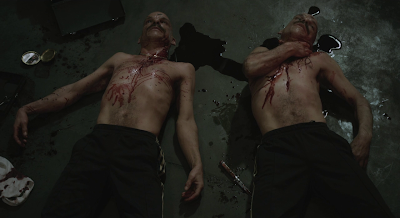Obviously, several films fit into multiple categories (and one, Holy Motors, was difficult to categorize into any genre at all—I chose Cult as I can envision the movie achieving a dedicated following in years to come). Documentary was the clear winner with 10 films, followed by Romance, Suspense and Comedy, all with 5. The two genres least represented, Crime and Western, corresponded to two of my favorite movies from this month.
Categorizing the 24 films for January by the era in which they were made was also interesting. The most prevalent "era" was actually last year, 2012, since all of the films I've been able to see this month in the cinema (the best way to see them) have been recent releases.
I would like to see if the number of films I'm able to see in the cinema can increase from this depressingly low number of 5. (In fact, one supporter of the Almost365Films mission was a proponent of committing to try and see 100 films in the theater!!! Not likely, but we'll see once festival time comes around.)
This final pie chart shows how I have rated the 24 films thus far. If I can manage to keep up this record-keeping, I'll be interested to see if the trend continues in which almost 90% of the films receive 3 stars or better. I guess it shows that I'm enjoying most of the movies I get to see!
My top five for the month of January
5. Grey Gardens
4. Rashomon
3. Citizen King














































